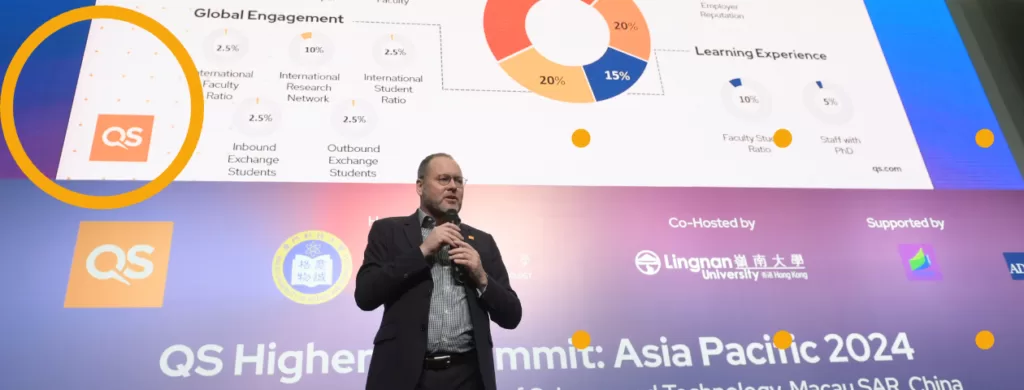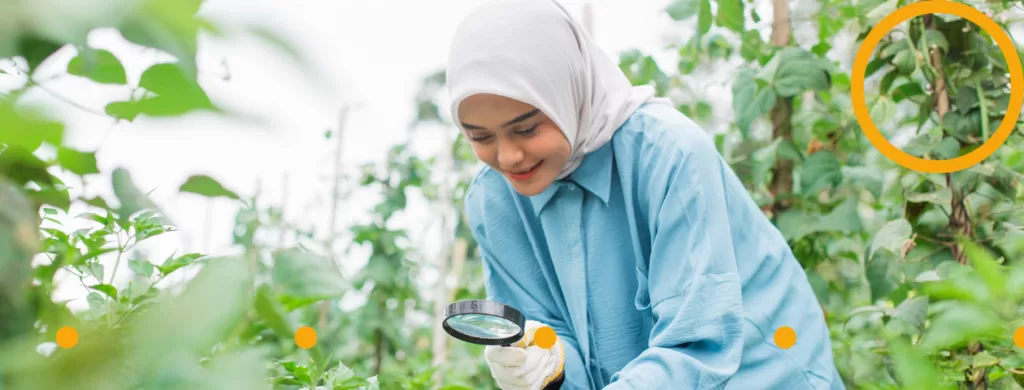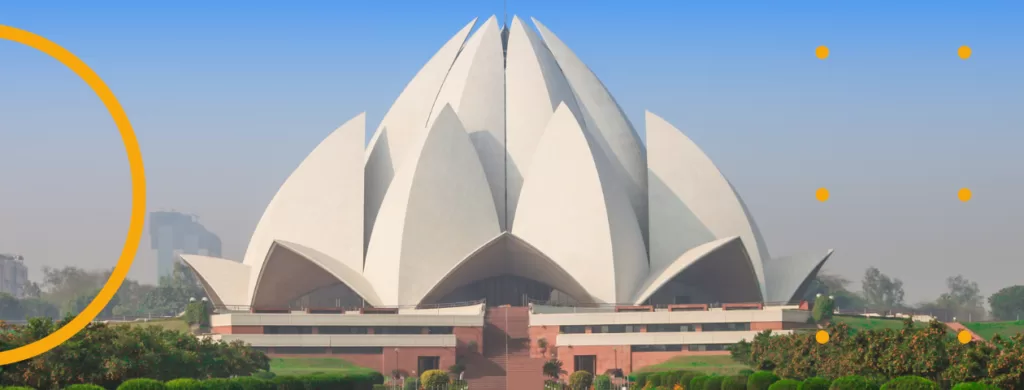
Why empowering women and young people in the Middle East to innovate and address sustainability challenges through education, entrepreneurship and economic inclusion is important for the sustainable development of the region.
Written by Haifa Al Kaylani, President & Founder, Arab International Women’s Forum for QS Insights Magazine
The empowerment of women in the green economy and in sustainable development and more specifically in green entrepreneurship, food security, water scarcity, sustainable agriculture and climate action, are key advocacy tracks with which the Arab International Women’s Forum (AIWF) has been deeply engaged over the last decade. Indeed, sustainability has been at the heart of AIWF’s mission in all of the 22 years since I founded the organisation in London as a non-profit organisation committed to economic inclusion and empowerment for women and young people in the MENA and beyond.
For AIWF, the empowerment of women and girls goes hand in hand with sustainable development and is essential to the achievement of the Sustainable Development Goal 5: Gender equality, because gender equality underpins all efforts to realise a sustainable future society that cares for people and planet. Empowering women ensures that the benefits of sustainable development are equitably shared and that women are both beneficiaries and contributors to the development process. Empowering women’s economic participation and gender parity in sustainable development is integral to unlocking economic growth and addressing socioeconomic inequality, which has worsened for women all over the world after the COVID-19 pandemic.
In all our international advocacy, AIWF aims to shine a light on our core belief that special emphasis must be given to the role of women, who remain at the frontline of addressing climate change, embodying resilience; and to youth, who are the future of the region. We see it as a marker of monumental progress that Arab women are no longer on the periphery of sustainable development in the region. They are centre stage in green entrepreneurship to grassroots activism, from policy formulation to technological innovation and their contributions are reshaping the region’s trajectory towards a peaceful, prosperous and sustainable future.
Positive work across the region
We clearly see green shoots of progress all around us. Arab women are increasingly establishing themselves as green business leaders and entrepreneurs, bringing forth solutions that emphasise sustainability. From start-ups focussing on renewable energy to businesses emphasising sustainable agriculture, women entrepreneurs are both leveraging and strengthening the very fabric of the region’s economy and in embedding sustainable practices within their ventures and social enterprises, ensuring that economic growth aligns with social progress, cultural preservation, environmental protection and social responsibility.
From Lebanon, Jordan and Iraq to the GCC, Morocco and Egypt, we see governments joining forces with the private sector, academia and civil society and investing significantly in national programmes that empower women entrepreneurs in sustainable agriculture, providing subsidies, grants and training opportunities to encourage women to venture and thrive in the green economy, in agribusiness and agritech ventures and in social enterprises that address the region’s most salient development challenges – food security, water scarcity and climate change. What we need more of is opportunities for women entrepreneurs in climate, agriculture and the green economy to connect with their counterparts in other parts of the MENA – more intraregional collaboration and investment and, certainly, more interdisciplinary connectivity.
For green women entrepreneurs and for the change makers who are merging sustainability with enterprise, AIWF has long called for strengthening capacity and skills through education and providing essential vocational training, access to resources and funding and mentorship. These are all platforms to help women start up, scale up and create the jobs that are so desperately needed in the region, which will directly contribute to solutions-building in these key development areas. Beyond job creation, we need a cohesive, strategic and collaborative drive to spotlight women’s leadership and to promote and support the progression of the region’s many highly educated and qualified women leaders in sustainability, climate and agricultural research, sciences and policymaking.
In countries such as the UAE, Egypt, Jordan and Tunisia, women have secured influential positions in government and in the diplomatic corps and are actively involved in sustainable development policy formulation
AIWF works especially closely with the region’s higher education institutions and we see first-hand that many Arab women educators, professors and trainers are leading efforts to integrate sustainability principles into educational curricula and training in their efforts to drive action for a sustainable future. This educational shift doesn’t just pertain to climate, environment, food and water security issues but also includes themes like gender equality, socio-economic inclusivity and peace education. The ripple effect of these efforts will shape a generation that is acutely aware of its responsibilities towards achieving the SDGs, especially Goals 1 & 2 (on poverty and zero hunger); Goal 3 (good health and wellbeing); Goal 5 (on gender equality); Goal 6 (clean water and sanitation); Goal 8 (Decent work and economic growth); Goal 10 (on reducing inequalities); and Goal 13 (on climate action).
In countries such as the UAE, Egypt, Jordan and Tunisia, women have secured influential positions in government and in the diplomatic corps and are actively involved in sustainable development policy formulation. Their unique perspectives are helping to shape policies that prioritise sustainable development and in championing issues such as water conservation, clean energy adoption and urban planning, women leaders are ensuring that national agendas are in sync with global sustainability targets.
Across the MENA region, we also see women deeply involved in scientific research aimed at solving some of the region’s most pressing sustainability challenges. Their work in sectors like water desalination, solar energy and sustainable agriculture contributes to the technological advancements that are key to combatting environmental degradation and resource scarcity. Urban planning in the MENA region is also undergoing industry-changing transformations because women architects, planners and engineers are weaving sustainability into modern infrastructural projects, from green buildings to public spaces that encourage community cohesion.
At the community level, many Arab women are engaged in grassroots movements that contribute to sustainable development in the region, focussing on issues from waste management to community farming. These women are not only strengthening community ties and promoting local solutions, but also helping to create resilient communities that can withstand socio-economic or environmental shocks, from climate-related extreme weather events to global health crises such as the pandemic.
In the tech and AI age, Arab women are at the forefront of the region’s digital transformation. From e-commerce platforms that promote sustainable goods to apps that track carbon footprints, tech-savvy Arab women are both creating and leveraging digital tools to foster environmental consciousness, with innovations that are bridging the gap between technology and sustainability. AIWF has worked for over a decade to promote awareness of new opportunities for women and young people in the digitisation of sustainable agriculture, championing the use of digital tools to improve efficiency and climate-sensitive agricultural approaches, the innovation of new platforms and techniques and the launch of products and initiatives designed to address sustainable agriculture challenges. In our experience in the region, the key to embedding sustainability into efforts to empower young people through education and economic inclusion is getting young people excited about innovating new sustainability, food security, water scarcity and climate solutions.
We are also witnessing growing numbers of Arab women entrepreneurs rooting their ventures in social impact. Their businesses aim to solve community challenges, from unemployment to education, while ensuring that the solutions are sustainable in the long run. These enterprises often empower and employ other women, creating a virtuous cycle of growth and sustainable impact. There are many thriving communities of NGOs helping women in the Arab world to utilise technology to address serious development challenges with social enterprise, giving women exciting new opportunities to lead and innovate to capture and create new markets in many important sectors upon which so many countries in the region rely for their economic prosperity, such as agriculture, travel and tourism, heritage and emerging digital marketplaces and service platforms where women are taking the lead in disruptive tech innovation. This surge in female-led tech entrepreneurship reflects a broader shift in the region’s socioeconomic dynamics, where technology and progressive thinking are converging to reshape traditional industries and to do so through a sustainable lens.
Realising that unity amplifies impact, Arab women are also creating powerful collaborations both within and outside the MENA region, ranging from business partnerships to research collaborations, pool resources, knowledge and expertise, accelerating the pace of sustainable development. We are proud at AIWF to have many of the region’s most inspirational sustainability leaders in our network and to frequently support their initiatives and innovations by connecting them with other women in the region as well as internationally.
Empowering women
Ultimately, we collectively need to recognise the value that women bring to sustainable development – as workers, farmers, buyers, innovators, investors, scientists, researchers, academics, civil society leaders and policy makers and leaders. Women must be empowered and fully engaged at all levels of policy, practice and decision-making processes, because they are key agents of change who hold the power to transform and innovate solutions to the world’s most critical sustainability challenges. Importantly, women must be invested in – through entrepreneurship incubation, through innovation grants and training, through capacity building and especially through education. This was a recurring recommendation that emerged from AIWF’s recent conference with the WiSER platform, an initiative of Masdar in Abu Dhabi, this last May in London, our conference entitled ‘On the Road to COP28’, which delivered close to 40 viable, action-oriented recommendations for the global community of women in climate, sustainability and STEM. This valuable report is now available on the AIWF website.
Like many other NGOs committed to a brighter future for women and young people, all of us at AIWF are looking ahead with great excitement and anticipation to COP28 in the UAE in November 2023. AIWF will have a significant presence working closely with our Global Partners – PepsiCo, Pfizer and PwC and with Institutional Partners the League of Arab States, all organisations that are steadfastly committed to promoting the value of entrepreneurship in sustainable development and fusing innovation with inclusive women’s leadership and equitable youth empowerment.
In the spirit of COP28, we look forward to opportunities to connect and convene with likeminded development organisations from the MENA and beyond, who share our dedication to supporting, nurturing and empowering women and young leaders in climate, sustainability and STEM. They are, quite simply, pivotal to the future prosperity, security and stability of the Arab world and key to its ability to navigate the acute and intersectional challenges that climate change presents to both people and the planet.



